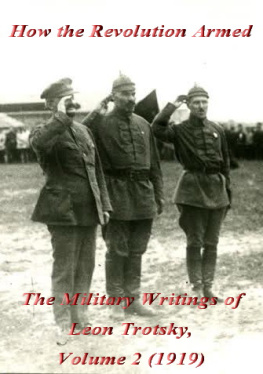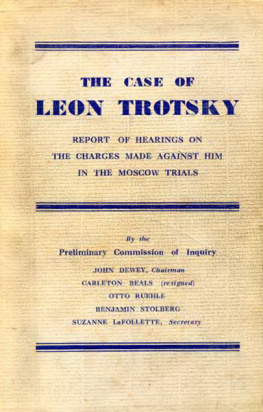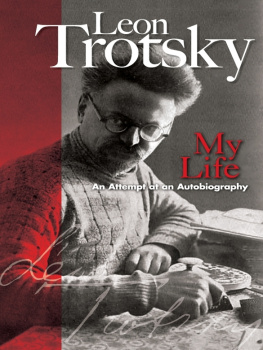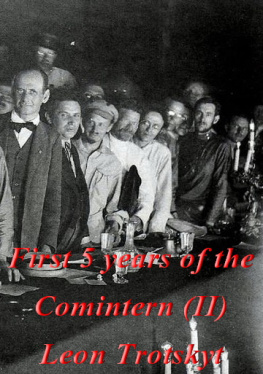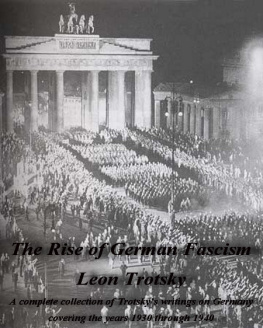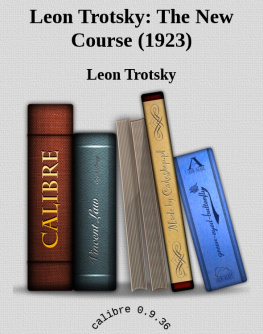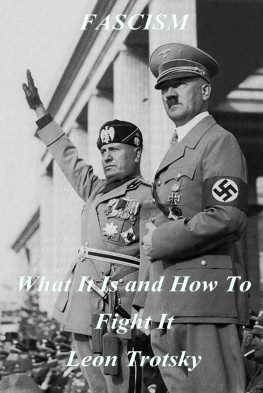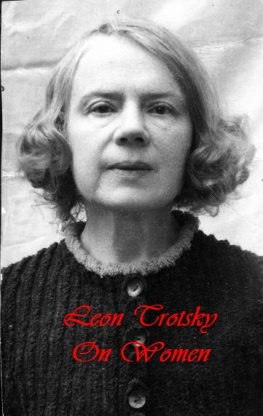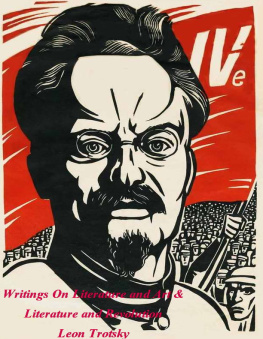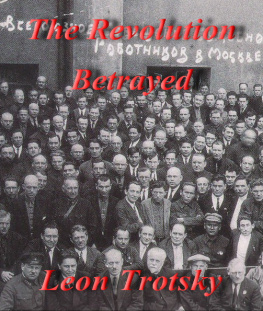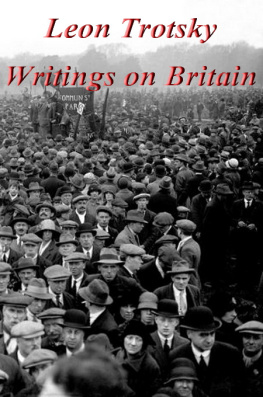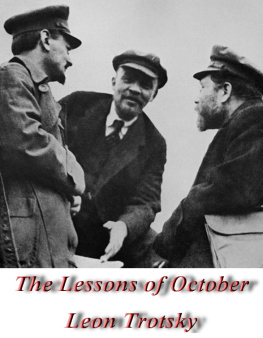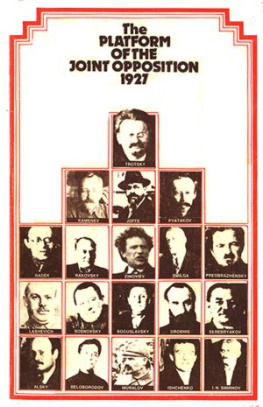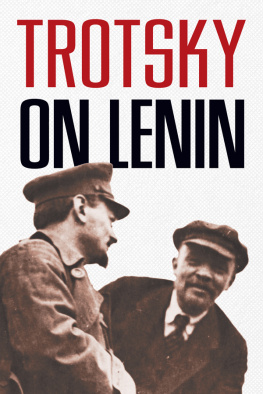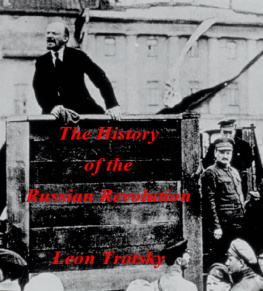AUTHORS PREFACE
* * *
T his book covers 1919, the year that was hardest for usand was the richest in military events. The reader will not find in this book any sort of connectedevaluation of our work in the sphere of military organisation or, still less, a history of themilitary operations. It is merely a collection of documents and materials. So far as I can judge,the collection is full enough, perhaps even too full: there is no lack of repetition, some of theorders are of formal rather than material interest, and so on. But it would really not beappropriate to make any changes in the present publication: while providing no coherence, suchchanges would at the same time deprive the documents of what is their principal significance,namely, their documentary character.
There is a prejudice to the effect that revolutionary armies are created by means ofagitation, this being the impression formed by persons who see the matter fromoutside. It would be extremely harmful if such a notion were to be taken up by revolutionaries inother countries: that would mean that they had gained nothing from our experience. Withoutagitation, of course, no revolutionary army can be created nor, for that matter, any othersort of army. But agitation forms only part of the problem. What is needed first and foremost is acorrect conception: a plan for building the army which corresponds to the social,political and technical conditions and resources of the revolutionary country. Only on this basiscan agitation, which explains to the working population and to the army itself the aimsand tasks of the armys work and struggle, develop a great force of comradely relations,devotion to duty and fighting enthusiasm. And, finally, on the basis of a correct conception and ofagitation derived from this, it is necessary to have a clear-cut, immutable, but at the same timeflexible, regime, as little bureaucratic as possible, that is capable of maintaining fromday to day in the necessary dynamic equilibrium such a complex, artificial organism as an army is.These are the three factors of success, which themselves, in their turn, undergo change in thecourse of building the army: the conception becomes more and more deeply thought-out, agitationbecomes more and more concrete, the regime becomes more and more precise. But woe if, in thisprocess, the regime starts to get overgrown with the rubbish of red-tape-ism!
Agitation, just because it is agitation, that is, because it is expressed in articlesand speeches, finds fuller reflection in the documents included in this book than does any otheraspect of military work. The reader must keep this firmly in mind, in order not to fall victim tothe above-mentioned prejudice about the allegedly all-embracing significance of agitation. In themilitary sphere more than in any other, the word merely supplements the deed.
L. Trotsky
January 8, 1924 |
External Situation of the Republic
ORDER OUT OF CHAOS
* * *
G erman soldiers are hastening back to their own countryfrom all the countries into which the criminal will of the German aggressors had cast them. Ontheir way home these soldiers are fallen upon by newly-formed Polish regiments, disarmed, andsometimes massacred. The Anglo-French and the Americans have grasped Germany by the throat and,looking at their watches, are counting her feverish pulse. This does not prevent them fromdemanding of the German Government that what remains of the German forces should engage in battlewith Soviet Russia, to stop her from liberating the lands that were occupied by German imperialism.The Belgians, whose country was only yesterday being crucified by German imperialism, are nowseizing purely German provinces of the Rhineland. Half way to beggary, cleaned out by their ownthieving rulers, the Romanians, whose capital has been, turn and turn about, the booty of theGermans and of the Anglo-French, are them selves grabbing Bessarabia, Transylvania and Bukovina.American troops from across the sea are awkwardly perched upon our cold and hungry North, wonderingwhy they have been brought there. The streets of Berlin, that city not long ago so proud of itsiron order, are awash with the bloody waves of civil war.
The American President, Wilson, patently a sanctimonious hypocrite, a Tartuffe in pious Quakerguise, travels around blood-drained Europe as the highest representative of morality, as theMessiah of the US dollar, chastising, pardoning and deciding the fates of nations. Everyone askshim in, welcomes him, pleads with him: the King of Italy; the traitor Mensheviks who rule inGeorgia; humble, ingratiating Scheidemann; Clemenceau, that mangy tiger of the Frenchpetty-bourgeoisie; all the fireproof safes of the City of London; and even the midwives ofSwitzerland. With his trousers turned up, Wilson strides through the puddles of European blood and,by grace of the New York stock-exchange, which did so well to place the last stake in the Europeanlottery, unites the Yugoslavs with the Serbs, estimates the price of the crown of the Habsburgs,between two pinches of snuff rounds off Belgium at the expense of plundered Germany, and meditateswhether or not to despatch orangutangs and baboons to save Christian civilisation from Bolshevikbarbarism.
Europe resembles a madhouse, and at first sight it seems the Inmates themselves do not know fromone half-hour to the next whom they are going to cut up and with whom they are going to makefriends. One lesson, though, stands out irrefutably from the troubled waves of this chaos the criminal responsibility borne by the bourgeois world. Everything that is happening in Europenow was prepared over centuries past by the structure of the economy, the state relationships, thesystem of militarism, morality and philosophy of the ruling classes, the religion of all thepriests. The monarchy, the nobility, the clergy, the bureaucracy, the bourgeoisie, the professionalintelligentsia, the masters of wealth and rulers of states these it was who prepared theincomprehensible events that are causing the old civilised andChristian Europe to resemble so closely a lunatic asylum.
Europes chaos is chaos only in form: what it essentially expresses is thehighest laws of history, which are destroying the old in order to create the new in its place. Thepopulation of Europe are now embattled, using exactly the same rifles, in the name of differenttasks and programmes which reflect different epochs of history. Fundamentally, they amount to thesethree imperialism, nationalism, communism.
This war began as a conflict between the great capitalist vultures for the conquest andpartition of the world: it is this that constitutes imperialism. But, in order to get themany millioned masses to fight, to set them against each other, to sustain a spirit of hatred andfrenzy in them, ideas, or sentiments, were needed that were close tothe masses, deceived and doomed to slaughter. The idea of nationalism served as this hypnotic agentat the disposal of the imperialist bandits. The mutual tie between people who speak the samelanguage and belong to the same nation is a great force. This tie was not felt when people lived apatriarchal life in their own villages or provincial districts. But the further bourgeoisproduction developed, the more closely it united village with village, the province with the town,the more did the people who were drawn into this whirlpool come to value a common language, thatgreat medium of material and spiritual community. Capitalism strove to consolidate itself first ofall on a national basis, and engendered many national movements: in fragmented Germany, indismembered Italy, in lacerated Poland, in Austria-Hungary, among the Balkan Slays, in Armenia.
By means of revolutions and wars the European bourgeoisie solved somehow or other, throughtearing and patching, some of the national tasks. A united Italy was created, and a united Germany without German Austria but, instead, with a dozen crowned heads. The peoples of Russia wereclamped together in the steel vice of Tsardom. In Austria and in the Balkans fierce strugglescontinued between nations that, while doomed to live in close proximity, were unable to establishpeaceful forms of coexistence.

